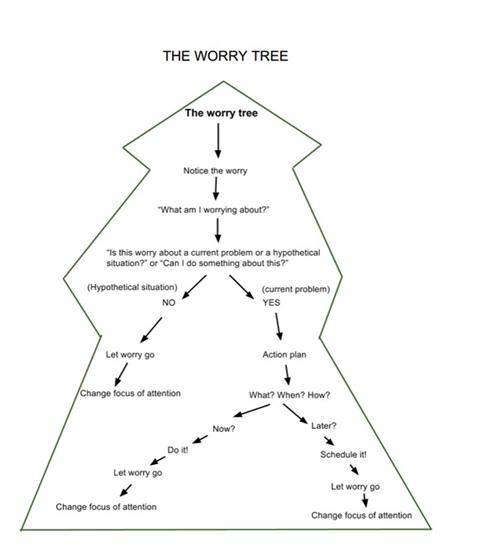
4 minute read
A counter-intuitive way to transform obstacles
by PaulGC
A counter-intuitive way to transform obstacles
The immeasurable power of Amor Fati, or “loving your fate”.
Advertisement
TopFX
MARIA MERAMVELIOTAKI Marketing Manager
Hello George, welcome back to Game Changers. It has been a long time since your last appearance. George, you must be one of the most controversial personas in the financial industry. With a background in Economics, you’ve dealt with FX for quite a lot of years! You were in, you were out and have decided you can do without! But first things first. What got you in the FX in the first place?
My formula for greatness in a human being is Amor Fati: that one wants nothing to be different, not forward, not backward, not in all eternity. Not merely bear what is necessary, still less conceal it—all idealism is mendacity in the face of what is necessary—but love it.”
Friedrich Nietzsche
What is fate? Are we free to choose how our life will unfold or are all the events of our life predetermined? If you happen to be a supporter of “free will” over destiny, your instinctual response will be to resist the idea of cultivating acceptance towards the notion of fate. Even if you haven’t ever thought about the question of free will versus destiny, you will still resist the idea of loving all the adversities that life throws at you. Humans are wired to avoid pain and seek pleasure, and that’s what we try to accomplish most of the time.
Amor Fati means “love of fate”. It describes an attitude where one sees whatever happens in life as good or at the very least as necessary. The idea of Amor Fati has been linked to Nietzsche but is also a concept central to Stoic Philosophy. Epictetus famously noted, “Don’t seek to have events happen as you wish, but wish them to happen as they do happen, and all will be well with you.”

To understand Amor Fati in a better way, we must define what “fate” is. Fate is all these things that are beyond our control and happen without us exercising our free will. Examples of such events are our specific ethnic identity, the DNA we were born with, our personality traits, and the environment we were brought up. Additionally, we could count as fate the experiencing of unfortunate events that we never thought will come our way. These events can range from trivial to critical; someone cutting us in line, getting fired, a car accident that wasn’t our fault, an unexpected failure, losing someone we love, an illness, or any other kind of life struggle.
Every time such an event occurs, our usual response is a mental fight against what happened. We mull over thoughts such as “This shouldn’t be happening” and “Why me”. It’s not unnatural to feel like this. However, it is never helpful. Our struggle against obstacles and adversity generates difficult emotions, such as disappointment or anger. We then find ourselves in a “secondary pain”, which is a pain about the pain we are facing.
Instead of fighting against the unfortunate event, you could choose to embrace it and practise Amor Fati. Although you cannot change the circumstances, you can change your thoughts, your beliefs and your attitude. How can this event help me improve my life? How can I make the best out of what I cannot prevent? It’s important to note that Amor Fati is not fatalism. It doesn’t suggest that we endure circumstances that are harmful to us and which we can control, such as staying in an abusive relationship, for example. It’s a mindset that helps us embrace and transform the obstacles that we have no control over.
Amor Fati can help us embrace the past and worry less about the future. We start by accepting everything that has happened in the past, embracing it or at least realising its necessity. We give meaning to our experience and use it to evolve into a better person.
As far as it concerns the future, it’s crucial to understand that most of our worry derives from our attachment to the outcome. The truth is that we cannot control the outcome. We can control our thoughts, beliefs and actions. We can try to set goals, act to fulfil them and give our best self. We can plan and organise our efforts to achieve what we want, but we cannot guarantee the outcome. There are always circumstances beyond our control, and therefore by attaching to the outcome, we burden ourselves with more worry. Stoics talk about the “dichotomy of control” on which Cognitive Behavioural Therapy has based one of its most common worksheets; “the worry tree”. It summarises as follows;
Can I control the event which I am worried about?
If no, then there is no point worrying. Practice acceptance and let the worry go. See how I can make the best out of it.

If yes, do something about it, prepare a plan of action and let the worry go.
When we choose to embrace the difficult events of our life, we get rid of the secondary pain, which is the emotional distress we feel about whatever has happened to us. Amor Fati liberates us from the illusion of control and our constant struggle against difficulty. We get to experience inner peace by loving every moment, no matter how challenging. We use it as fuel for our improvement and for making the best out of our imperfect life.
“When we are no longer able to change a situation - we are challenged to change ourselves.”
Viktor E. Frankl










